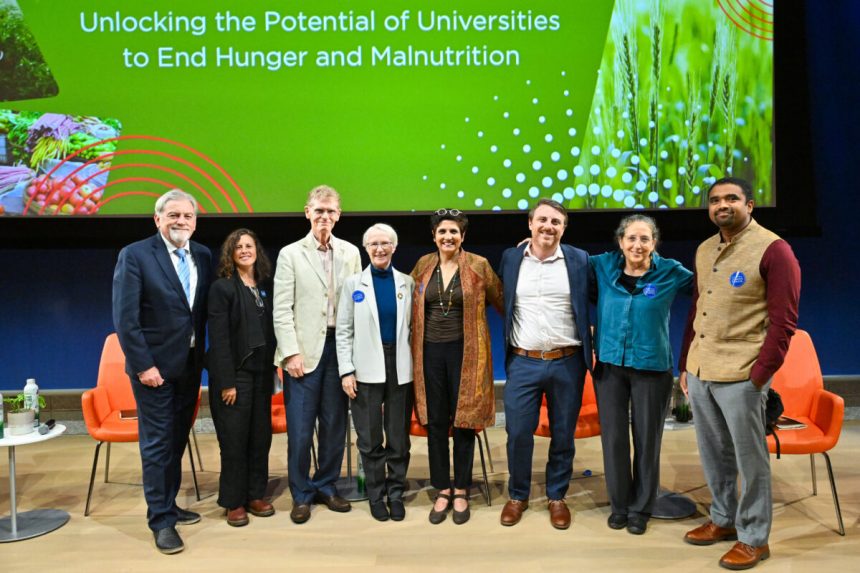Bollinger Convening: Food for Humanity—Unlocking the Potential of Universities to End Hunger and Malnutrition
Can powerful institutions like universities address seemingly intractable issues like global hunger? How can they get critical research into the hands of policymakers? And how can we co-create solutions with communities that are the most impacted by climate change? These questions were at the forefront of discussion at the recent event, Food for Humanity: Unlocking the Potential of Universities to End Hunger and Malnutrition, hosted by the Columbia Climate School as part of New York City’s Climate Week.
The event featured a variety of panels with Columbia Climate School affiliates, including Jeffrey Shaman, interim dean of the Climate School; Jessica Fanzo, professor of climate at the Climate School and director of the Food for Humanity Initiative; Ruth DeFries, co-founding dean emerita at the Climate School; and Cynthia Rosenzweig, senior research scientist at the Climate School’s NASA Goddard Institute for Space Studies.
Participants at the event shared their perspectives on global issues related to hunger and malnutrition. Notable speakers included Lazarus Chakwera, president of Malawi, who highlighted the acute food insecurity in his country due to natural disasters; and Garry Conille, prime minister of Haiti, who spoke about the challenges of food insecurity just 45 minutes away from a wealthy nation.
The role of women in global politics was also a key topic of discussion, with speakers emphasizing the need for greater representation and leadership of women, particularly from the global south.
Panelists also discussed the importance of research in addressing issues of food security and malnutrition. Ambassador Ertharin Cousin underscored the need for data granularity in food systems, while Ana Maria Loboguerrero highlighted the necessity of packaging research data in a way that persuades policymakers.
The event also explored potential solutions to address food insecurity, such as the importance of opportunity crops that are more climate-resilient. Speakers emphasized the need for collaboration between universities, research institutions, and communities to drive meaningful change.
Overall, the event provided a platform for fruitful discussions on how universities can play a pivotal role in ending hunger and malnutrition globally. By leveraging research, partnerships, and community engagement, universities have the potential to make a significant impact in shaping a more food-secure future for all.






